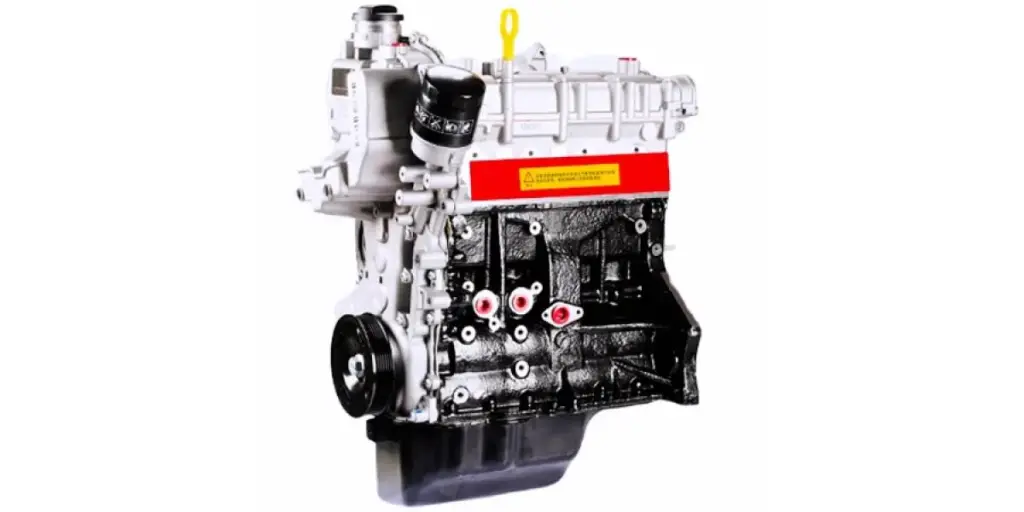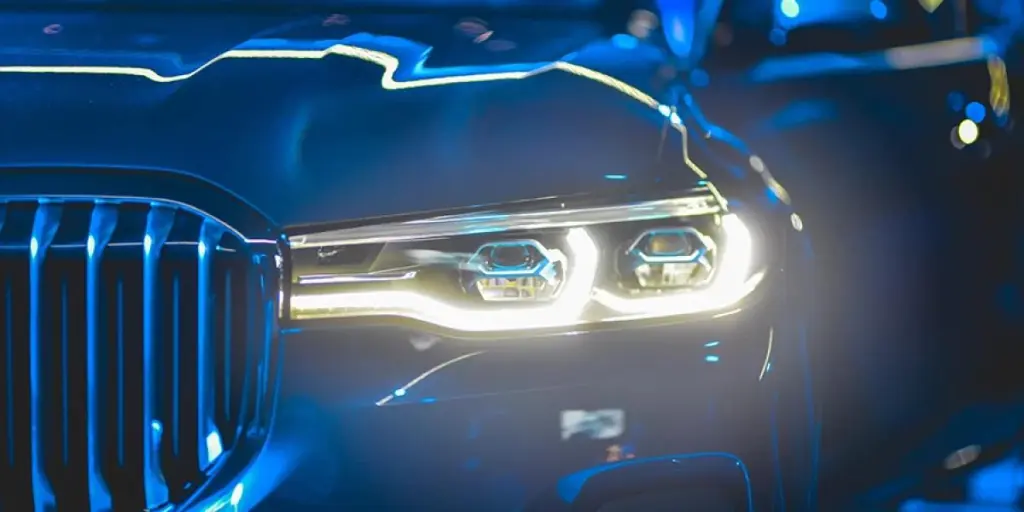The Volkswagen EA211 engine is used in almost all small Volkswagen vehicles, such as Golf, Passat, and Tiguan. It was introduced in 2012 to replace the previous EA111 engine. The EA211 produces 122 and 150 horsepower, depending on the specific variant and vehicle application.
This article will describe the main features of a Volkswagen engine and then discuss the most common failures of the Volkswagen EA211 engine.
Table of Contents
Volkswagen engine features
7 common failures of the Volkswagen EA211 engine
Conclusion
Volkswagen engine features
Low and high-temperature cooling system
The Volkswagen EA211 Engine has a low and high-temperature cooling system that helps regulate the engine temperature to prevent overheating. The low-temperature cooling system is designed to keep the engine operating optimally during normal driving days. It mainly consists of a radiator, thermostat and water pump.
The high-temperature cooling system is designed to help prevent engine damage during extreme driving conditions such as racing. It typically consists of an additional radiator and cooling fan that provides more cooling capacity when the engine is heating too much. Therefore, it is evident that the low and high-temperature cooling system in a Volkswagen machine has been designed to maintain engine performance and ensure its longevity.
Variable turbocharger geometry (VTG)
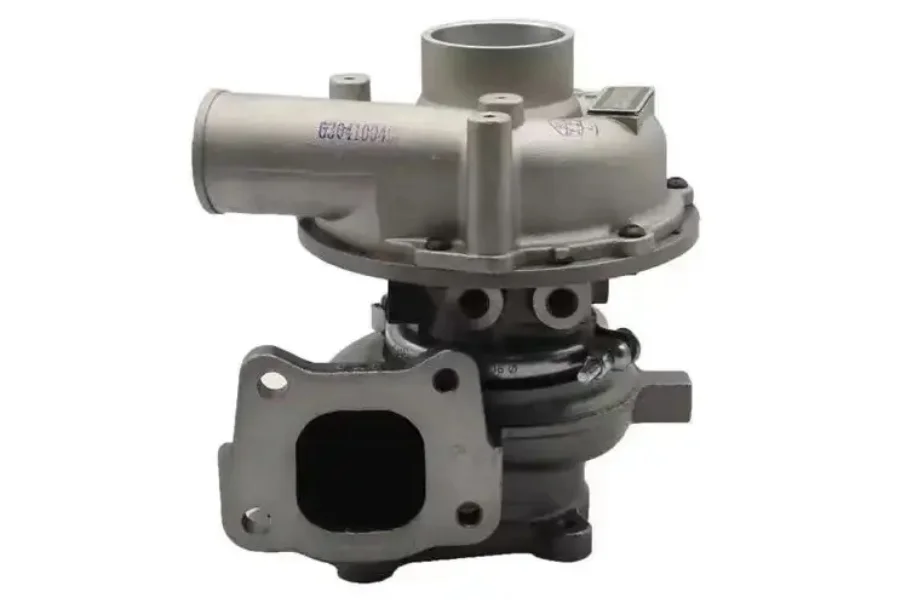
Variable turbocharger geometry is a technological feature in Volkswagen EA211 Engines that helps to optimize engine performance. It optimizes engine performance by adjusting the geometry of the turbocharger based on the driving conditions.
The main advantage of having the variable turbocharger geometry is that it allows for more control over it. This results in an improved engine response, increases power input and ensures better fuel efficiency.
Active cylinder technology (ACT)
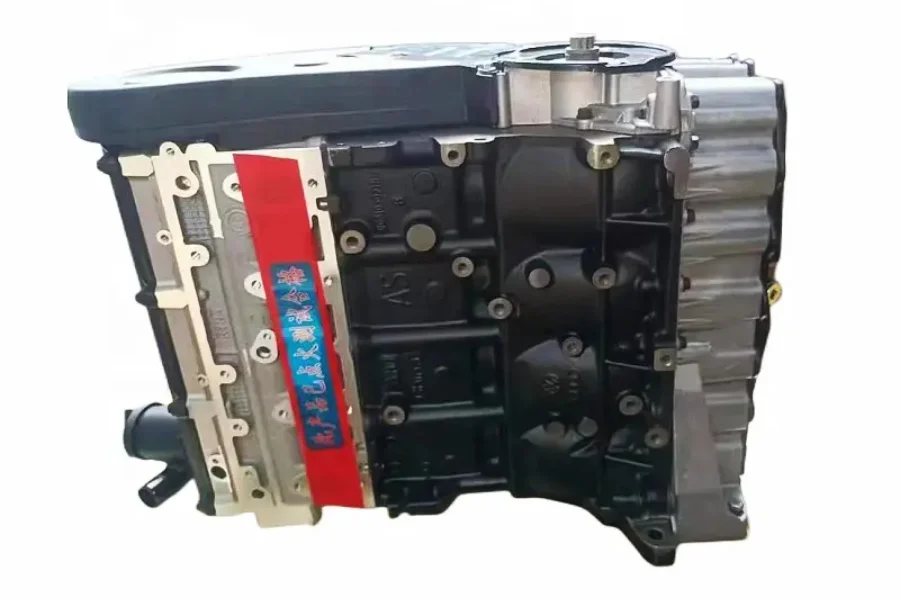
Active cylinder technology is a fuel-saving technology that is available in several Volkswagen models such as Passat, Golf and Tiguan. The active cylinder technology uses sensors that detect when the vehicle is cruising at a constant speed. It then automatically deactivates some cylinders in the engine to help reduce fuel consumption. The main benefits of the active cylinder technology are increasing fuel economy and lowering gas emissions.
EGR system
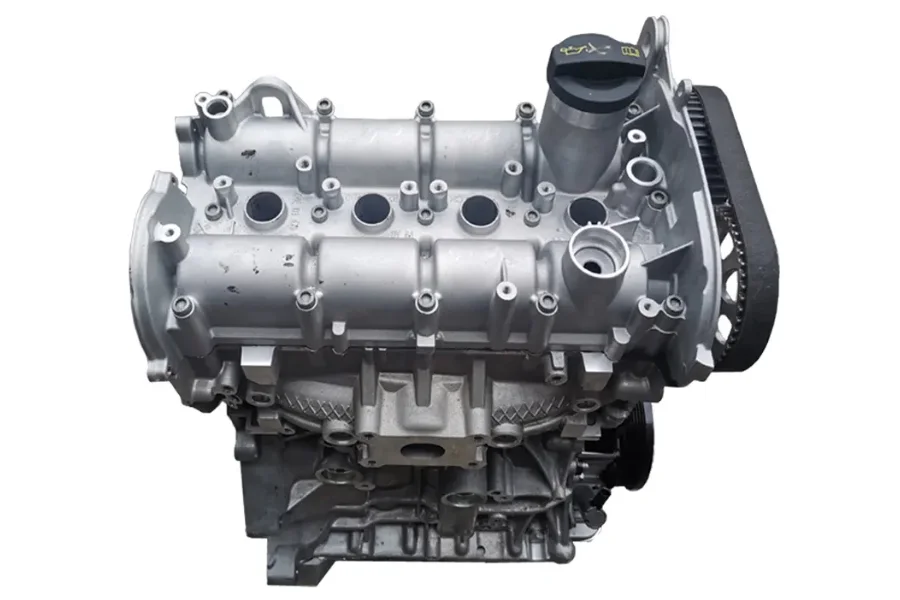
Volkswagen has been using the EGR system for years, and it is now a standard feature in their diesel and gasoline engines. The EGR system is designed to reduce the emission of nitrogen oxides. This happens by recirculating some of the engine’s exhaust gases into the combustion chambers. Reducing such gas emissions has helped reduce air pollution and improved environmental protection.
Active valve timing
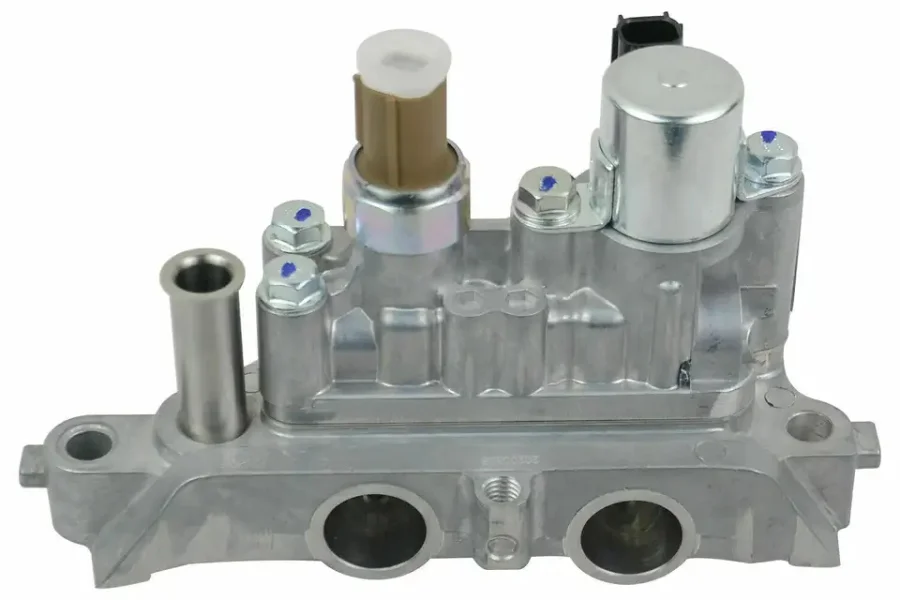
Active valve timing is another feature found in a Volkswagen engine which helps improve engine performance, emission and efficiency. The active valve timing works by allowing the timing of the engine’s intake and exhaust valves to be adjusted in real-time to optimize the engine’s performance.
Volkswagen has used different forms of AVT over the years, including Audi valvelift System found in their TSI and TFSI engines.
7 common failures of the Volkswagen EA211 engine
Timing chain tensioner failure
Timing chain tensioner failure is a common issue in the Volkswagen EA211 engine. The timing chain tensioner is primarily responsible for ensuring the timing chain is tight. When the timing chain is tight, the engine’s valves open and close at the right time.
The timing chain often becomes loose when the tensioner fails, leading to engine damage. Symptoms of a failing timing chain include:
- Engine misfires.
- A failed timing chain could cause an engine not to start.
- A metallic rattling noise could be created from a worn timing chain.
- The engine may lose power as the valves and pistons are not working together as they are supposed to.
The solution to this issue often involves replacing the timing chain tensioner with an updated part. Ignoring such an issue could lead to more significant engine damage, which would later be costly.
Juddering
Juddering is a problem, especially in the 1.4 TSI and 1.5 TSI variants. Some of the main factors that cause this problem include dirty air filters, faulty spark plugs, malfunctioning throttle bodies, and fuel injectors.
However, the most common cause of juddering in a Volkswagen EA211 engine is a direct shift gearbox transmission problem. This issue can be fixed by replacing the direct shift gearbox transmission with a new one.
A malfunctioning ignition coil is another possible cause of juddering in the Volkswagen EA211 engine. Ignition coils are responsible for delivering electrical power to spark plugs. This ignites the fuel and air mixture in the engine. Therefore, when the ignition coil fails, it causes a misfire in the engine leading to juddering.
Excessive oil consumption issues
The excessive oil consumption issues are believed to be related to the engine’s piston rings. Piston rings may wear out prematurely, allowing oil to enter the combustion chamber and burn with the fuel.
Owners of affected cars may also notice the engine oil level has dropped significantly between oil changes and may need to add oil frequently, unlike a properly functioning engine. In most cases, such an issue results in engine failure. Therefore, a business wanting to purchase this car must check on the turbo seals, piston rings and valve guides.
Water pump failure
A Volkswagen EA211 engine has a water pump responsible for circulating coolant through the engine block and a radiator for temperature regulation. Therefore, when the water pump fails, it causes overheating and potential engine damage. For a business, some common signs to look at before purchasing the vehicle include coolant leaks and overheating.
VW AVT failure
As explained, the valve timing is controlled by the AVT system. However, the AVT system is complex, and there have been reported cases, especially of issues related to the actuation of the AVT system. The Volkswagen AVT failure can result from faulty timing chains, oil leaks and problems with the engine control module.
Carbon buildup
Carbon buildup is another common failure of the Volkswagen EA211 engine. Carbon buildup mainly occurs when carbon deposits accumulate on the intake valve and other parts of the engine. Since airflow is restricted, this carbon buildup can cause a misfire, decreased engine performance and rough idling.
Some factors that contribute to carbon buildup include:
- The driving style.
- Quality of fuel used.
- Oil consumption.
To prevent carbon buildup in the EA211 engine, following the manufacturer’s recommended maintenance schedule is essential. This includes having regular oil changes, using high-quality gasoline, and avoiding short trips.
Turbocharger failure
The turbocharger is a component of the engine’s forced induction system that compresses the air entering the engine, which increases the engine’s power output. The turbochargers are often subjected to high levels of heat and pressure, which cause them to fail over time.
The main symptoms of a turbocharger failure include excessive oil consumption, lack of acceleration, loss of power, and unusual noises coming from the engine.
However, to prevent turbocharger failure, it is vital to change the engine oil regularly, frequently replace air filters, and avoid aggressive driving. In addition, installing an upgraded turbocharger can help prevent premature failure.
Conclusion
The Volkswagen EA211 engine is well known for its reliability, efficiency, and smooth power delivery. The engine has features such as an EGR system, active valve timing, low and high-temperature cooling system, variable turbocharger geometry, and active cylinder technology. To read more, or to find Volkswagen engines at wholesale prices go to Alibaba.com. Alternatively, learn more about the common problems of Volkswagen EA888 engines.
